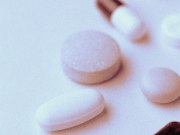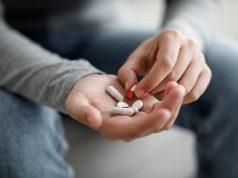Agomelatine, amitriptyline, escitalopram are among most effective agents in head-to-head trials
THURSDAY, Feb. 22, 2018 (HealthDay News) — For adults with major depressive disorder, all antidepressants are more efficacious than placebo, according to research published online Feb. 21 in The Lancet.
Andrea Cipriani, M.D., from the University of Oxford in the United Kingdom, and colleagues conducted a systematic review and meta-analysis to compare and rank 21 antidepressants used for the acute treatment of adults with unipolar major depressive disorder. Data were included from 522 trials with 116,477 participants.
The researchers found that all antidepressants were more effective than placebo in terms of efficacy, with odds ratios ranging from 2.13 for amitriptyline to 1.37 for reboxetine. Only agomelatine and fluoxetine correlated with fewer dropouts than placebo in terms of acceptability (odds ratios, 0.84 and 0.88, respectively), while clomipramine was worse than placebo (odds ratio, 1.30). Considering all trials, the between-antidepressant differences in odds ratios varied from 1.15 to 1.55 for efficacy and from 0.64 to 0.83 for acceptability. In head-to-head studies, the most effective antidepressants were agomelatine, amitriptyline, escitalopram, mirtazapine, paroxetine, venlafaxine, and vortioxetine, while the least efficacious were fluoxetine, fluvoxamine, reboxetine, and trazodone. Compared with other antidepressants, agomelatine, citalopram, escitalopram, fluoxetine, sertraline, and vortioxetine were more tolerable, while the highest dropout rates were seen for amitriptyline, clomipramine, duloxetine, fluvoxamine, reboxetine, trazodone, and venlafaxine.
“These results should serve evidence-based practice and inform patients, physicians, guideline developers, and policy makers on the relative merits of the different antidepressants,” the authors write.
Several authors disclosed financial ties to the pharmaceutical industry.
Copyright © 2018 HealthDay. All rights reserved.








